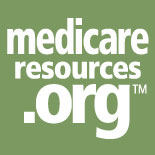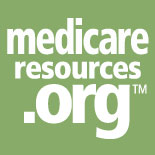House|Senate
108th Congress, Vote 459; Senate #1
Medicare Prescription Drug, Improvement, and Modernization Act of 2003
Official Title: An act to amend title XVIII of the Social Security Act to provide for a voluntary prescription drug benefit under the medicare program and to strengthen and improve the medicare program, and for other purposes.
HR1, S1 Medicare Prescription Drug Benefit Bill
House bill passed 216-215, 4 not voting June 27, 2003.
Senate bill passed 76-21, 3 not voting June 26, 2003.
After the two bills were unified in Conference, the legislation came back to the
House, where it passed 220-214, November 22, 2003.
Three days later, Senate passed this final version, 54-44, November 25, 2003.
Synopsis: The Medicare Prescription Drug, Improvement, and Modernization Act provided prescription drug coverage for the elderly and gave private health plans (a.k.a., "Medicare Advantage" plans) a much larger role in the Medicare program.
This was not the first time that Washington tried to nudge seniors into private-sector plans, hoping that that free-market competition would bring down the cost of care. In 1997, Medicare began giving beneficiaries a choice between traditional Medicare (with the government paying medical bills directly) and "Medicare + Choice," a program that paid HMOs to provide Medicare benefits to seniors. The theory was that the private sector would do a better job of finding innovative ways to trim costs while enhancing benefits.
Unfortunately, things didn't work out that way. First, many HMOs found ways to shun the sickest seniors by charging high co-pays for items like chemotherapy, hospital care, oxygen and dialysis. As a result, they wound up with a relatively healthy pool of customers. Meanwhile, Medicare paid the HMOs a lump sum per enrollee, without adjusting for the fact that private insurers had winnowed out so many of the most expensive patients. Thus, in 2003, Medicare shelled out roughly 4 percent more for Medicare + Choice enrollees than it would have spent if these same healthy seniors had stayed in traditional Medicare where they would have used fewer services.
Even so, insurers soon began to grouse that Medicare's payments were not high enough to keep up with the soaring cost of care, and they began bailing out of the Medicare + Choice. From 1998 to 2003 the number of Private M +C plans fell by 50 percent. Other private Medicare + Choice insurers raised co-pays and deductibles. As a result, over the five years ending in 2003, the list of beneficiaries enrolled in M+C plunged from 6.2 million to 4.6 million.
Enter the Medicare Modernization Act of 2003. This time around Congress hiked payments to private insurers. These payments varied in different parts of the country, reflecting differences in health care costs in different regions. In some places insurers enjoyed enormous increases: for instance, in Long Island's Nassau Country, Medicare lifted payments to private insurers by over 24 percent.
It seemed that Congress had given up on the theory that private sector insurers could provide better care for less. But some still believed that if private insurers were given enough time to let market forces kick in, the cost of care would, in fact, fall.
But the Medicare Modernization Act also greatly expanded coverage–and costs– by providing prescription drug coverage to seniors under Medicare Part D. The legislation explicitly barred the federal government from negotiating directly with drug companies to lower prices.
The Votes
The Medicare Modernization Act would roil Congress, and the roller-coaster votes on this bill would set history.
The legislation was supported by President George W. Bush. But in 2003, not all Republicans were willing to vote along party lines. As a result, the political pressure was intense when the bill came up for a vote in the House in June 2003. A dramatic roll-call lasted more than 40 minutes, with the ''nays'' outnumbering the ''yeas,'' while House Republican leaders feverishly pressured legislators to vote for the bill.
Three Republican representatives then changed their votes. One opponent of the bill, Ernest J. Istook, Jr. (R-OK-5), changed his vote to "present" upon being told that C.W. Bill Young (R-FL-10), who was absent due to a death in the family, would have voted "aye" if he had been present. Next, Republicans Butch Otter (ID-1) and Jo Ann Emerson (MO-8) switched their votes to "aye." At 2:30 a.m. the bill passed by one vote, 216-215.
A day earlier, the Senate had cleared its version of the bill by an overwhelmingly bipartisan vote of 76 to 21 http://www.nytimes.com/2003/06/27/us/house-and-senate-pass-measures-for-broad-overhaul-of-medicare.html?pagewanted=3&src=pm Although the House and the Senate had now each passed their versions of the legislation, the two bills had to be reconciled in "Conference" – the place where the House and Senate compromise
A final version of the bill did not come back to the House until November 21. At that point, one of the most contentious votes in the history of Congress began to unfold. The legislation didn't come to a vote until 3 a.m. on November 22. After 45 minutes, the bill was losing, 219-215. Speaker Dennis Hastert and Majority Leader Tom DeLay began working to convince some of the dissenting Republicans to switch their votes, as they had in June. Ernest J. Istook, Jr. (R-OK-5), who had always been a wavering vote, consented quickly. The tally was now 218 to 216. In a highly unusual move, the House leadership held the vote open for hours as they sought two more votes.
Representative Nick Smith (R-Mich.) would claim that he was offered campaign funds for his son, who was running to replace him, in return for a change in his vote from "nay" to "yea." Smith later said that no explicit offer of campaign funds was made, but that he was offered "substantial and aggressive campaign support" which he had assumed included financial support.
About 5:50 a.m., the leadership convinced Butch Otter (ID-1) and Trent Franks (AZ-2) to switch their votes. With passage assured, Democrats Calvin M. Dooley (CA-20), Jim Marshall (GA-3) and David Scott (GA-13) changed their votes to the affirmative. But Brad Miller (D-NC-13), and then, Republican John Culberson (TX-7), reversed their votes from "yea" to "nay." The bill ultimately passed 220-215.
The Senate's consideration of the compromise "Conference" bill was somewhat less heated–until Tom Daschle raised a budget point of order. Since 60 votes were necessary to override this challenge, some observers thought he had a credible chance of blocking the legislation.
For several minutes, the vote total was stuck at 58-39 – until Senators Lindsey Graham (R-S.C.), Trent Lott (R-Miss.), and Ron Wyden (D-Ore.) voted in quick succession, bringing the tally to 61-39. The bill itself was finally passed 54-44 on November 25, 2003. It was signed into law by President Bush on Dec. 8.
Why supporters pushed for this bill
- Seniors had long complained that prescription drugs were becoming unaffordable. Some said they had to choose between buying medication and buying groceries.
- During his 2000 presidential campaign, George W. Bush promised to make prescription drug coverage for seniors one of his top priorities. With Republicans controlling both houses of Congress, many GOP lawmakers also felt the pressure to deliver on a promise before the 2004 election campaigns got underway.
- Conservatives also had long believed that if Medicare became a private sector program, market competition would lower costs. They hoped that if they created "Medicare Advantage" and paid private insurers more, those insurers would be able to offer extra benefits that would draw seniors into the private insurance programs, and that ultimately, most would join private sector Advantage plans.
Why opponents tried to stop the bill
- Those who refused to vote for the bill saw it as a sweetheart deal for drug-makers and insurers. Medicare wouldn't be able to bargain for better prices with pharmaceutical companies, but would be sending many more customers their way. Meanwhile, insurance companies would be paid far more to take on Medicare patients than they had been under Medicare + Choice.
- Detractors pointed out that under the bill, seniors would receive limited prescription drug coverage. In addition to paying a premium pegged at $35 a month and satisfying a $250 deductible, most seniors who signed up for the prescription benefit would have to pay 25 percent of their annual drug costs up to $2,250 but 100 percent of additional costs up to $5,100. The plan would then covers 95 percent of drug costs above $5,100. (Low-income seniors would receive more generous benefits.
- Others suggested that by paying Medicare Advantage so much, the legislation was designed to turn Medicare into a private sector program. If wealthier, healthier seniors gravitated toward Medicare Advantage (because it offered benefits that would appeal to this group, such as discounts on gym membership), traditional Medicare would become much like Medicaid – a "poor program for the poor."
- Many believed the $400 billion bill was just too expensive. This is why conservative Republicans in the House joined Democrats in fighting the bill. In fact, a month after President Bush signed the Medicare Modernization Act, administration officials and congressional aides acknowledged that the legislation would cost at least $134 billion more than expected, or a total of $534 billion over ten years. "The news on the Republican Medicare bill gets better and better for drug company profits and HMOs, and worse and worse for seniors and the Medicare program," said Sen. Edward M. Kennedy (D-Mass.), one of the law's strongest opponents.
| 11/25/2003 | Status: Senate conference report agreed to |
More: select a member to see his or her other key Medicare votes.
|
No (44) Our pick | ||
|---|---|---|
| D | Mark Pryor | AR |
| R | John McCain | AZ |
| D | Barbara Boxer | CA |
| D | Christopher Dodd | CT |
| D | Joseph Biden | DE |
| D | Bob Graham | FL |
| D | Bill Nelson | FL |
| D | Daniel Akaka | HI |
| D | Daniel Inouye | HI |
| D | Thomas Harkin | IA |
| D | Richard Durbin | IL |
| D | Evan Bayh | IN |
| D | Edward Kennedy | MA |
| D | Barbara Mikulski | MD |
| D | Paul Sarbanes | MD |
| D | Carl Levin | MI |
| D | Debbie Stabenow | MI |
| D | Mark Dayton | MN |
| R | Trent Lott | MS |
| D | John Edwards | NC |
| R | Charles Hagel | NE |
| R | Judd Gregg | NH |
| R | John Sununu | NH |
| D | Jon Corzine | NJ |
| D | Frank Lautenberg | NJ |
| D | Jeff Bingaman | NM |
| R | John Ensign | NV |
| D | Harry Reid | NV |
| D | Hillary Clinton | NY |
| D | Charles Schumer | NY |
| R | Don Nickles | OK |
| R | Lincoln Chafee | RI |
| D | John Reed | RI |
| R | Lindsey Graham | SC |
| D | Ernest Hollings | SC |
| D | Thomas Daschle | SD |
| D | Tim Johnson | SD |
| D | Patrick Leahy | VT |
| D | Maria Cantwell | WA |
| D | Patty Murray | WA |
| D | Russell Feingold | WI |
| D | Herbert Kohl | WI |
| D | Robert Byrd | WV |
| D | John Rockefeller | WV |
| Not Voting (2) | ||
|---|---|---|
| D | Joseph Lieberman | CT |
| D | John Kerry | MA |



